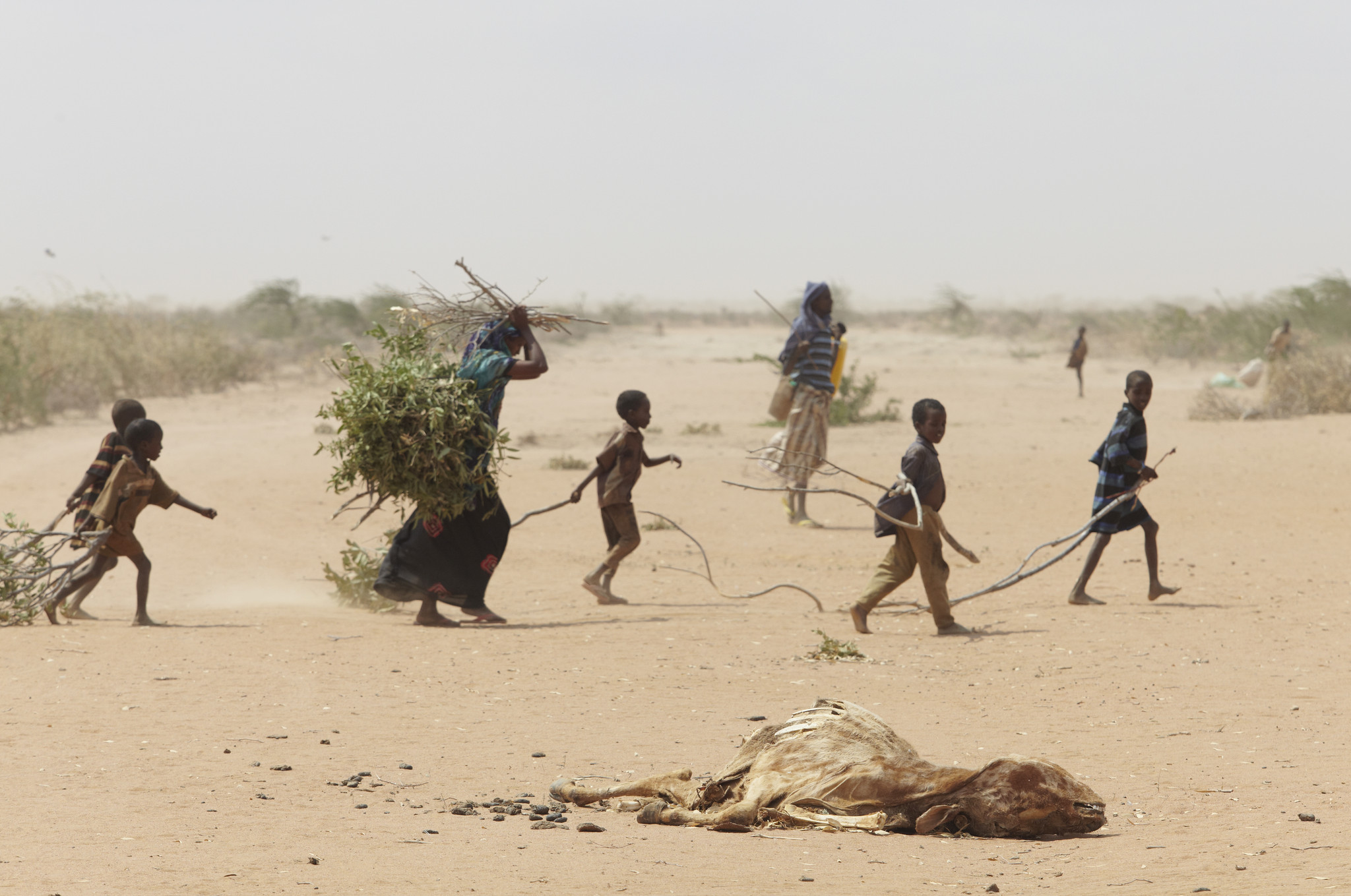Climate Change is a global crisis, recognised and monitored under ever-evolving international laws and treaties – but it’s rarely explored in the context of human rights. In honour of Earth Day, 22 April, we explore what climate change is and what it means for us as rights-holding citizens.
The first ever Earth Day, held in the United States of America on 22 April 1970, came about after a massive oil spill in California in 1969. People came together to rally for a national day focusing on the environment, and crucially, the need to protect it.
Nearly 40 years later, some 192 countries celebrate the day around the world, drawing attention to both the impact we have on the environment and the profound impact it can have on us.
What Is Climate Change?
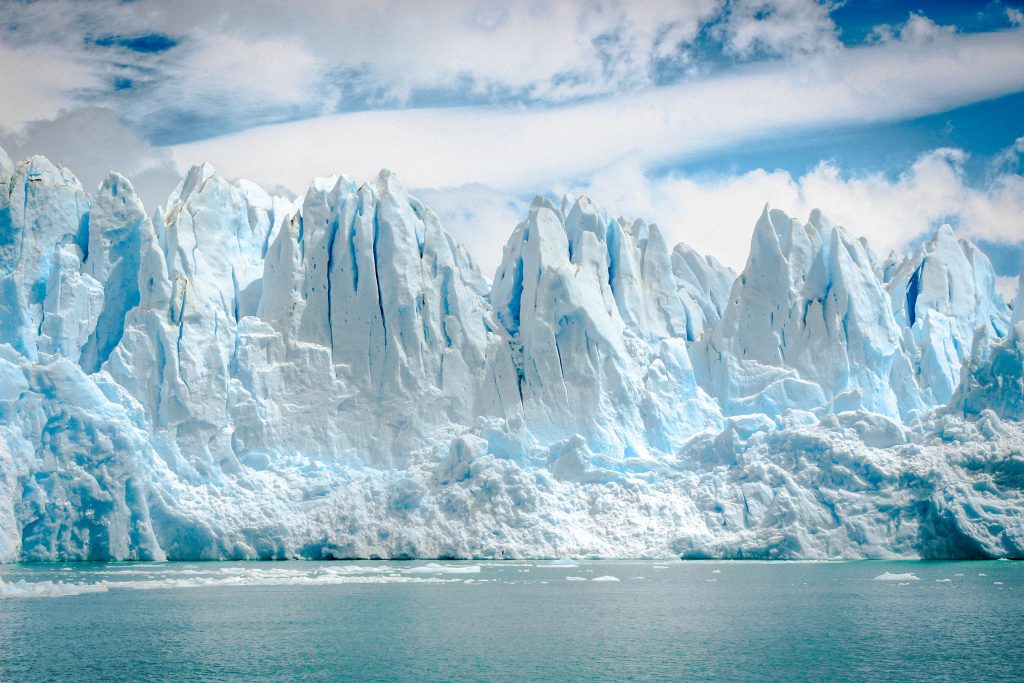
It isn’t just about things getting hotter or colder, or at the ends of the earth. Image Credit: Alto Crew / Unsplash
In 1992 at the United Nations Earth Summit in Rio de Janeiro, 172 states got together to discuss the relationship between humans, the environment, and the damage caused by the destruction of natural resources and pollution. They were looking for ways to “ensure a healthy planet for generations to come” and set out an international environmental treaty, the United Nations Framework Convention on Climate Change (UNFCCC), which came into force two years later.
Climate change is a change altering the global atmosphere that can be observed over time, and indirectly or directly caused by human activity.
The UNFCCC defines climate change as a change altering the global atmosphere that can be observed over time, and which is indirectly or directly caused by human activity. The “adverse effects” of climate change involve changes to the physical environment such as wildfires, droughts and intense tropical storms which have a damaging effect on socio-economic systems, human health, and welfare.
What Does Climate Change Mean For My Human Rights?
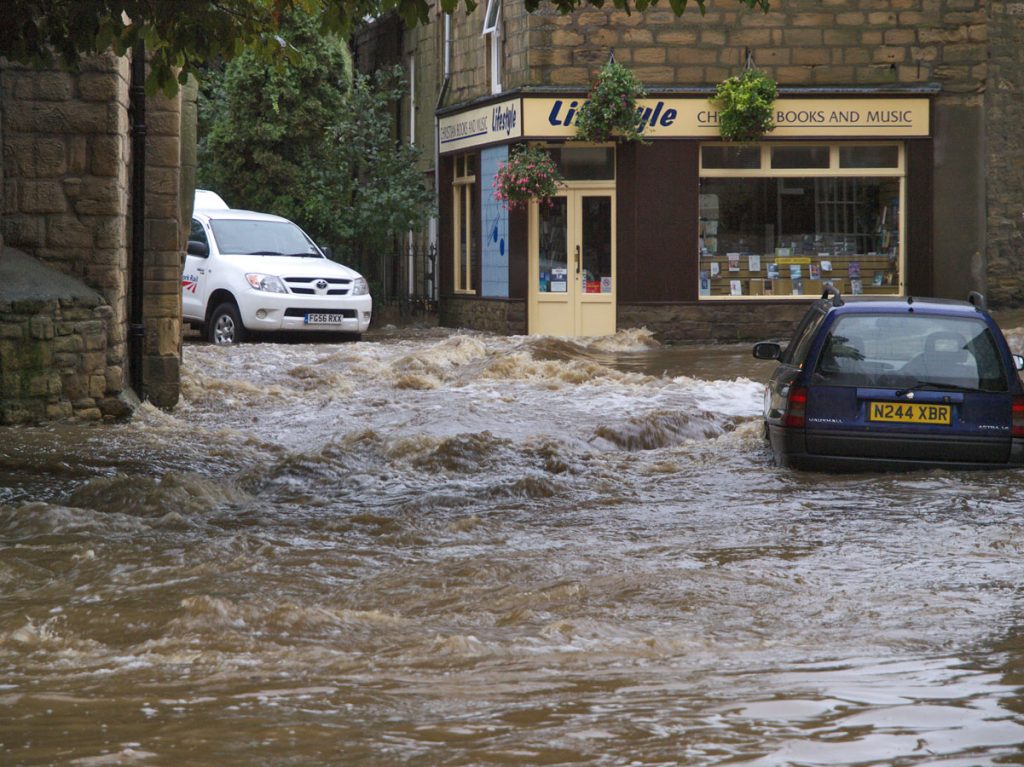
Extreme weather events have become more common, both abroad, and here in the UK. Image Credit: John Dal / Flickr
In the most recent World Disasters Report in 2018, it highlighted some 3,751 natural hazards during the past decade, more than one a day. More than 80 per cent of these were related to the weather, affecting at least two billion people. There is no doubt that with these natural disasters comes shock, outcry and consequently, a lasting effect on human beings around the world, but how does it affect our fundamental rights?
In 2007, the Male Declaration, called for the global community to make a “commitment to an inclusive process that puts people’s […] survival and rights at the centre of the climate change debate”. It not only stressed the link between climate change and the full enjoyment of human rights, but it sets in motion a formal, documented approach to tackling climate change as primarily a human rights concern.
Everyone has the right to enjoy the highest attainable standard of physical and mental health.
International Covenant on Economic, Social and Cultural Rights
Closer to home, the Human Rights Convention also includes Article 2, which states that everyone has the right to life. The disasters caused by climate change can undeniably directly threaten human life, as the adverse weather conditions such as floods and heatwaves, for example, can cause death, disease, displacement and injury. In 2003, Europe experienced a heatwave with fatal repercussions having been linked to over 30,000 deaths.
And that’s without even mentioning the indirect threats to human life. Breathing and heart failure has increased with the reduction of air quality and the increase of pollution, with a recent study saying it could cause 36,000 deaths a year in the UK, highlighting the dangers of both the causes and effects of climate change.
That’s without even mentioning our right to health. While it isn’t explicitly mentioned in the Human Rights Convention, the UK is signed up to the International Covenant on Economic, Social and Cultural Rights, which means we’re bound to protect it. Article 12 goes as far as to declare that everyone has the right to “enjoyment of the highest attainable standard of physical and mental health”. It goes without saying that ill-health, malnutrition and infectious diseases, which jeopardize the health of many people, increase with extreme weather events.
A Devastating Catalyst For The Spread Of Deadly Diseases
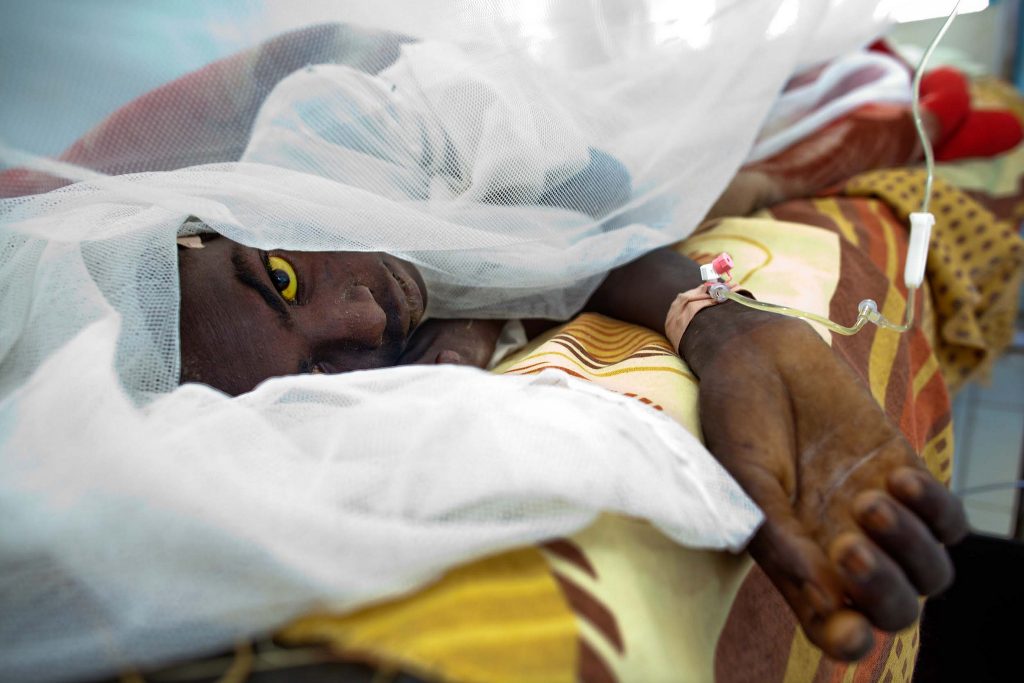
Image Credit: UNAMID / Flickr
There are countless examples, but take El Nino and La Nina as just one. The weathers patterns are related to an increase in the surface temperature of the tropical Pacific Ocean. El Nino events occur every few years and usually cause an increase of temperature and surface water.
These climate change events act as a catalyst for the spread of deadly diseases like malaria, dengue and yellow fever, which have devastating effects on the health of hundreds of thousands.
Due to its impact on sanitation, access to clean water and food production; the consequences of climate change go on to cause poverty and malnutrition. Currently, there are roughly 795 million people who are undernourished, the majority of whom live in the poorest countries in the world – they are also those most vulnerable to extreme weather.
The World Food Programme has created an interactive map that shows the potential impact of climate change on food insecurity. If we don’t address the issue and make a conscious collective effort to counter the negative effects of climate change, the human suffering behind the statistics will only increase.
So, What’s Happening Next?
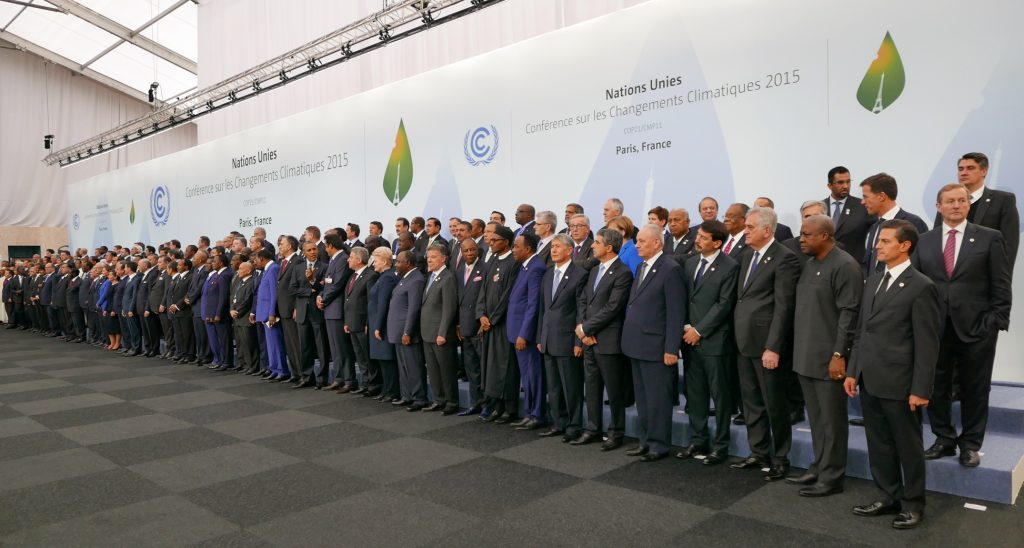
Delegates signing the Paris Agreement. Image Credit: Wikimedia
Whichever way you look at it, more needs to be done. The 2015 Paris Agreement reminds states to consider human rights obligations when taking action to address climate change, however, it was dealt a blow in 2017 when Donald Trump pulled the USA out.
Additionally, the Human Rights Council stresses how human rights obligations can strengthen climate change policy-making by ensuring access to justice, effective participation, and accountability.
Essentially though, beyond acknowledging the link through international documents and treaties, there has been little to no action on addressing climate change through a human rights mechanism.
In 2015 the Philippines Commission on Human Rights (CHR) did bring the first human rights case of its kind though, holding 47 major fossil fuel companies to account for their alleged role in climate-induced human rights abuses.
The CHR, which has the power to investigate human rights violations, is shining the spotlight on companies known for being some of the largest producers of greenhouse gases such as CO2 and methane in the region. The greenhouse effect, caused by the production of greenhouse gases, is recognised as the main cause of climate change, with hearings continuing around the world.
Climate change is, without question, one of the most pressing global issues of our time, and human rights are a key part of that. The fight to stymie the damage needs every tool it can get – and human rights should no doubt play their part.

